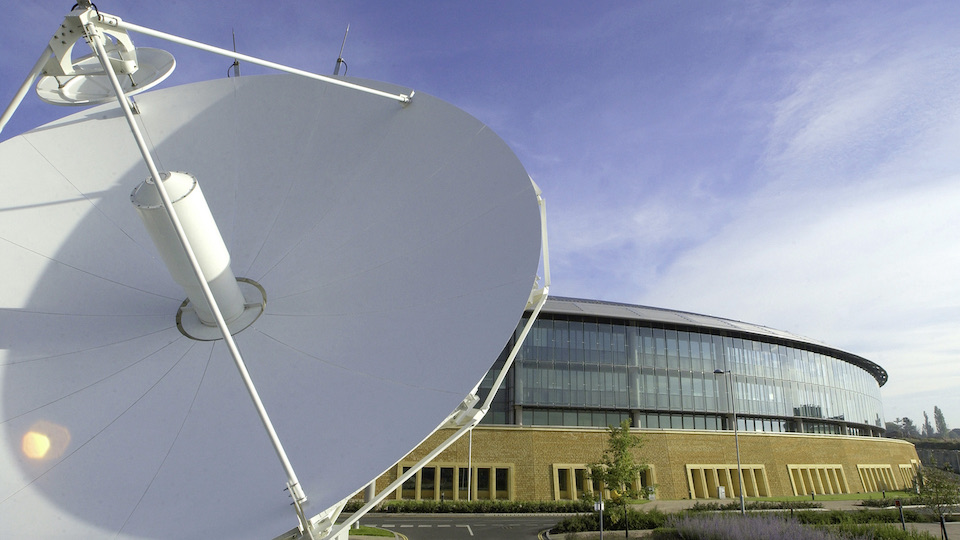Judgement: Mass surveillance violates human rights

The British secret service GCHQ has violated the European Convention on Human Rights (ECHR) with its warrantless mass surveillance. This was decided by the Grand Chamber of the European Court of Human Rights (ECtHR) on Tuesday. Several non-governmental organisations filed complaints between 2013 and 2015 after it became known that the secret service was tapping communications data on a massive scale.
The judges found that the surveillance violated the right to respect for private and family life (Article 8 ECHR). This was because the underlying surveillance law lacked sufficient safeguards to limit the intrusion into the private lives of citizens to the extent “necessary in a democratic society”.
The right to freedom of expression (Article 10 ECHR) was also violated, as no protection was provided for journalists and their sources. The court called the protection of sources a cornerstone of freedom of press. Undermining this protection affects the press’ ability to serve as a public check and balance as well as its ability to provide reliable information.
However, the court did not declare mass surveillance inadmissible in general. The judges laid down new safeguards requiring states to review the necessity and proportionality at each point in the surveillance process. For example, an independent body must be the one to authorise mass surveillance and there must be independent scrutiny after the fact. The categories of search terms used to screen communications must also be approved.
The court’s decision refers to the legal situation under the Regulation of Investigatory Powers Act of 2000, which has since been replaced. In 2018, the first section of the court had already handed down a similar ruling (in German), finding a violation of Articles 8 and 10 of the ECHR. The Grand Chamber has now confirmed this judgement and defined additional safeguards.
NGOs had filed lawsuits
Between 2013 and 2015, a total of 16 non-governmental organisations and individuals had filed lawsuits against mass surveillance by the British intelligence service – including Big Brother Watch, Open Rights Group, Amnesty International, Privacy International and the spokesperson of the Chaos Computer Club, Constanze Kurz. The ECtHR had consolidated the lawsuits.
The lawsuits were triggered by Edward Snowden’s revelations in 2013 about the surveillance programmes of the NSA and GCHQ. Among other things, the British intelligence operation “Tempora” was revealed, wherein the GCHQ tapped submarine cables and intercepted communications conducted via these cables.
Judgement binding throughout Europe
The ECHR, based in Strasbourg, France, is an institution of the Council of Europe and not a body of the European Union. The court is responsible for ensuring compliance with the European Convention on Human Rights. The judgements of the ECtHR are binding for the states that have signed the European Convention on Human Rights. Privacy International therefore expects the ruling to have an impact not only on the UK, but also on Europe: It is expected that all 47 member states of the Council of Europe will now review their surveillance laws and bring them into line with the court’s ruling.
Constanze Kurz also wrote (in German) that the protective measures stipulated by the court “will have to give all states that conduct mass surveillance food for thought – including Germany. The BND Act must therefore also be scrutinised.” Furthermore: “In Europe, we now have the unquestionable finding by the Human Rights Court that the previously secret British operations of mass tapping of communications data has been illegal for many years, according to basic human rights.”
Intelligence services held accountable
Ilia Siatitsa, Legal Director of Privacy International, said: “Today the Court reiterated that intelligence agencies cannot act on their own, in secret and in the absence of authorisation and supervision by independent authorities. They must be accountable because their capabilities to access personal data about each and every one of us – even if we’re not suspected of any wrongdoing – pose serious risks in a democratic society. The judgment offers some pieces of the puzzle for stronger protections in the future, but it is not the end.”
Silkie Carlo, director of Big Brother Watch, said: “Mass surveillance damages democracies under the cloak of defending them.” She added, however, that the Court had failed to impose clearer restrictions and safeguards.
A government spokesperson told the British newspaper The Guardian that they have taken note of the ruling and that the Investigatory Powers Act of 2016 had already replaced large parts of the rules made at that time. The ruling refers to the version of the law created in 2000. (js)